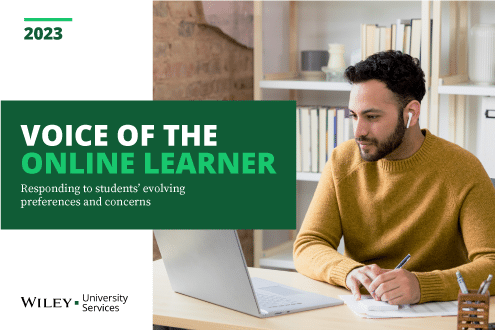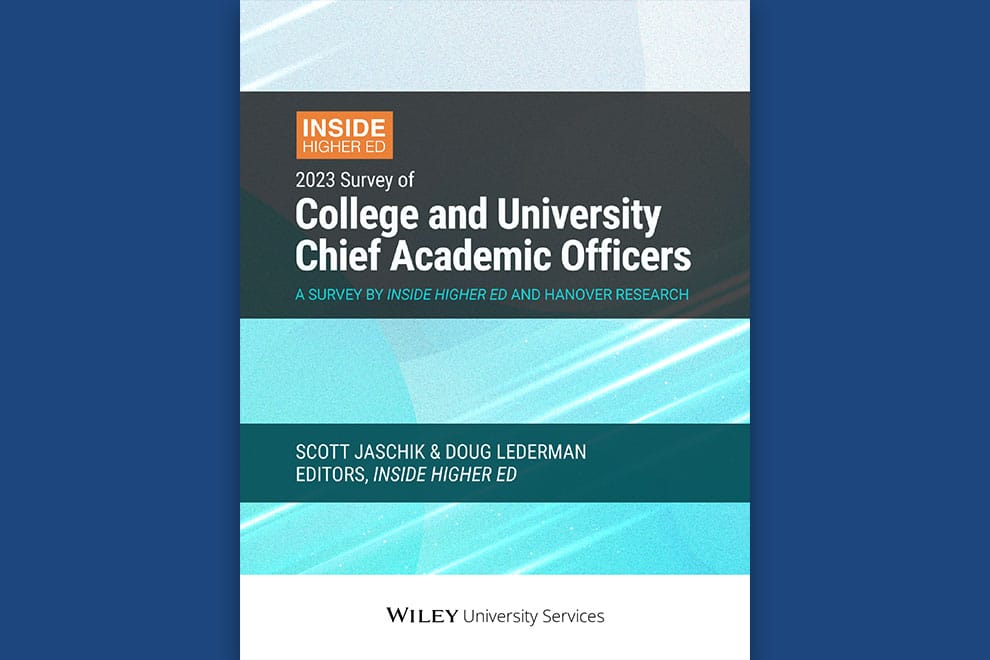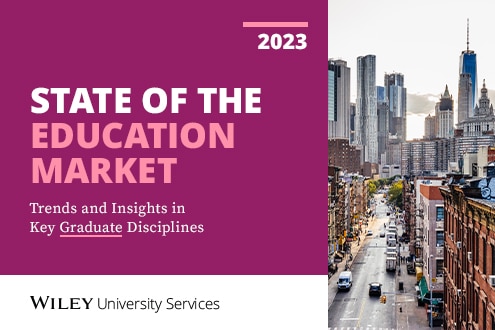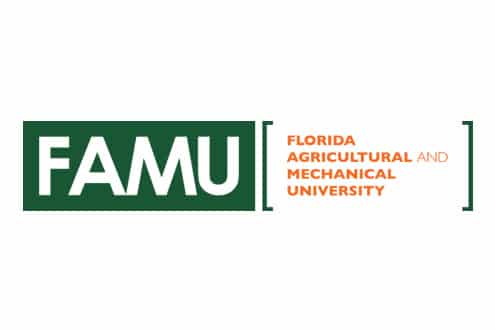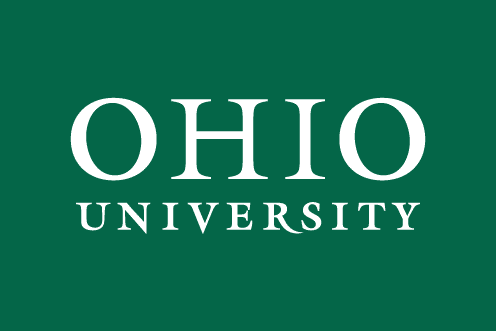Speaker 1:
You’re listening to An Educated Guest, a podcast that brings together great minds in higher ed to delve deeper into the innovations and trends guiding the future of education and careers, hosted by the executive vice-president and GM of Wiley University Services and Talent Development, Todd Zipper.
Todd Zipper:
Hi, I am Todd Zipper, host of An Educated Guest. On today’s show, I speak with Tammy Thieman, director of Amazon Career Choice, which is Amazon’s education program focused on career advancement and skills training. With over 80,000 participants in 14 different countries, Amazon Career Choice aims to move hourly employees into higher-paying in-demand jobs. During her six-year tenure at Amazon, Tammy is focused on upskilling initiatives, such as supporting veterans, hiring in tech, and launching Amazon’s first Department of Labor Registered Apprenticeship program, which builds technical skills for Amazon Web Services. Prior to Amazon, Tammy began her career as an active duty Army officer, and recently retired as a lieutenant colonel from the US Army Reserve, where she was the Pacific Northwest leader for Command and General Staff College.
The key takeaways from our discussion today, first, how Amazon Career Choice created a 45% enrollment increase in the first six months of 2022. Second, how Career Choice helps employees be good consumers of their education and land opportunities wherever their careers take them. Third, why Career Choice rigorously vets education providers in their network. Fourth, how Career Choice is part of Amazon’s greater education pledge of 1.2 billion by 2025. Lastly, why Career Choice will continue measuring results relentlessly and share learns widely. Hello, Tammy, and thank you for being here today.
Tammy Thieman:
Hi, Todd. I am super excited to be with you.
Todd Zipper:
Excellent. I’m really excited to get into what’s going on with Amazon and the Career Choice Program, but before we jump into that, I’d love to hear about your background a little bit and how you ended up running the Amazon’s Career Choice program.
Tammy Thieman:
Sure. My background, I have a pretty windy road to the role that I’m currently in. I started my career in the military. I basically went through college on an ROTC scholarship and then landed in the military and then had various jobs that eventually led me to Amazon and came to Amazon to support Amazon’s initiative to hire veterans. As part of that, started AWS’ technical apprenticeship program where we were really focused on helping veterans bridge any skill gaps that they may have from the technology they learned in the military to what they needed for hire at Amazon Web Services. Then that led to Career Choice, which was and is really focused on developing new skills, and so because my career has been so windy, I think I have a lot of appreciation for folks who are taking left turns or right turns in their career to achieve their career goals.
Todd Zipper:
Yeah, it’s great because most education isn’t a straight line, as you just said.
Tammy Thieman:
Exactly.
Todd Zipper:
Yeah, so you actually have the experience to help all of these associates upskill and reskill. Let’s jump in. The Career Choice is our main topic of today. I know it’s been around for 10 years, although it’s been getting so much attention today with headlines around major investments and different programs you’re doing. Can you maybe talk us through the history of the program and where it started and where it is today?
Tammy Thieman:
Sure. You’re right, Career Choice actually just celebrated its 10th-year anniversary, which we’re really excited about. Really, fundamentally, we believe that everybody who comes to Amazon can build their career with us. Career Choice is actually one of Amazon’s nine programs that are part of our Upskilling 2025 pledge, which is a $1.2 billion commitment to provide skills training to 300,000 employees by 2025. Career Choice started in 2012, really offering post-secondary education to our hourly workforce, and then over the last 10 years, we’ve really iterated on the program.
To your point, at the beginning of this year, we made some significant enhancements in the United States, which included adding a broader range of programming, so bachelor’s degrees, language learning, high school completion. We also reduce the time it takes for an employee to be eligible for Career Choice to just 90 days, and then they remain eligible for as long as they’re employed with Amazon every year, and for those that participate in the program, we prepay tuition, which removes a significant barrier financially for associates.
As a result of these changes, in the first six months of this year, 2022, Career Choice saw a 45% enrollment increase, bringing the number of people who’ve participated in the program across our 14 countries to over 90,000. We’re really excited to see that employees are responding really positively to our expanded offerings and we’re excited to continue to iterate as we continue to meet employees where they are and provide the skills training that they’re seeking.
Todd Zipper:
That’s fantastic. If you think about it, a lot of corporations give tuition benefit, largely to their employee, right? You hear stats like 3% or 5% of their workforce might use it. It’s usually around this $5,250 number that the government gives a tax benefit for. Then I guess the employee has to come up with additional monies annually, maybe through loans to complete some sort of degree. It seems like Amazon is breaking this model in a lot of different ways, maybe in potentially supplying more than that number to help meet certain careers. Maybe you can unpack this a little bit more on how the actual benefit works. Walk us through one of those 90,000 colleagues. What are they getting, how does it work, and maybe the types of programs that they’re actually enrolling into?
Tammy Thieman:
Yeah, sure. I think at the end of the day, Career Choice is really focused on outcomes, so we center ourselves around helping people select the right program, enroll and persist through that program, complete the program, and then after completion, take that next step towards the role that they’ve just trained for. That’s really where we center our program.
I think when we talk about one of our participants, they’re eligible at 90 days, but prior to that 90-day mark, we allow folks to engage in a coaching service to begin exploring what are all of the programs that are available to them, what’s the right program for them, how do they think about that in light of what their skills are, what their abilities are, what their life circumstances. They can only study at night, they can only study on the weekends. What does that look like, right? We really double down on helping our employees be good consumers of their education, meaning let’s pick the right program for you. Then we help them enroll and we prepay, removing that financial barrier. We have coaching services that support employees through the duration of their programming, so when they need academic support, just motivation support of like, “Hey, we have all been there.” When it’s two nights before the final exam, and you’re like, “How am I going to get this done?”, we provide that level of support.
Then at completion, really focusing on helping folks take that next step. That can be really daunting, right? When you think about, “Okay, I’ve been doing this one job, I’ve just trained for a new one. How do I take my next step? What does that look like in terms of resume prep, interview prep? How do I talk about the great skills that I already have?” I think sometimes people minimize the skills that they have. If you’ve worked at Amazon, it means that you’ve been problem-solving, you’ve been collaborating, it means you’re communicating. All of those things are great things that you bring to your next role, whether that’s at Amazon or elsewhere. Then I would just say we really work very closely with our partners, our education network partnerships, to really deliver education that meets what we’re trying to achieve.
Todd Zipper:
Yeah, it’s great. I want to hit on that point for a second, but I just wanted to highlight that I love the name of the program. If you’re an associate, you’re saying, “Oh, Amazon Career Choice? You’re going to help me in your career,” and that’s exactly what you’re doing. But of course, it’s the education, which is the connective piece that you’re going to have to do to upskill yourself and move forward. I think that’s just a great way to think about that.
Before we jump into your network of programs that you talked about, I’m really curious about that. What were some of the guideposts around return on investment that you were seeing, right? Obviously, something was working here that you were able to measure. Could you talk a little bit about that, of how you’re maybe past and now present, measuring the success of this program?
Tammy Thieman:
Yeah, so again, I think what we really double down on is this education partner network. We have a rigorous selection for the partners who are in our network. We really believe that it’s a collaborative approach, but at the same time, we really want to see exceeding industry averages, right? We have across the board, we have a variety of schools. We have national online providers, we have four-year universities, community colleges, as well as other training providers.
But at the end of the day, we’re really looking about achieving industry-busting outcomes. We know that the adult learner has really unique challenges that they’ve got to overcome, and so we’re really looking to ensure that these partners are helping our learners overcome any barriers, like how do we prepay for tuition? That’s what Amazon does. We also offer multiple learning modalities, so we’re accommodating various learning styles. We have online, we provide local campus options, we provide in our fulfillment center options.
Then when we really take that to, when we think about return on investment, right, we’re really looking to see that because we’ve removed these barriers and we have a high-caliber education network, that we’re getting better outcomes both in terms of completion, but then taking that next step to actual job placement. That’s really where we see the ROI, but I think just taking a step back, it really comes down to those individual lives that we’re changing.
One of my favorite stories is Samuel. He immigrated from Kenya, took his first job in the United States at Amazon packing boxes in our warehouse. He enrolled in Career Choice, he earned a commercial driver’s license, and then moved into a completely different industry, saved enough money to buy a coffee roaster, and started his own coffee-roasting business, and is now an Amazon seller coming full circle back into the Amazon family, and is supporting himself through his coffee-roasting business. I think when we talk about return on investment, right, you see how that plays across the entirety of his story.
Todd Zipper:
Absolutely. You just hit on a point that really struck me as one of the really coolest things about the Amazon program was that when I hear about these programs, it’s usually like, “How do we keep people here, right? A retention benefit, or how do we make them better while they’re here?” But a big part of Amazon’s program seems to be to help people maybe find careers elsewhere. I would love to understand what’s driving that. How are you thinking about that? You obviously just shared a nice way of how that works for the whole Amazon ecosystem, but I think it’s a powerful part of your program.
Tammy Thieman:
Yeah, for sure. I think it comes back to a few different things, so I’ll touch on a couple of things. One is fundamentally, we believe that everybody who comes to Amazon can build their career, and Career Choice is one of the ways that we do that. We have a leadership principle that says we strive to be Earth’s best employer, and so offering great wages, great benefits, and education is one way that we achieve that leadership principle.
We also know, right, that this does have a retention benefit, for sure, but there are a lot of studies right out right now that really speak to what candidates and employees are looking for. Amazon had partnered with Gallup to launch a study and we found that 58% of folks said that training benefits was critically important to them in their selection of a new role. Strata just released some data and some research that shows that people aren’t leaving jobs because they’re dissatisfied, they’re moving to new roles because of the opportunity that it affords, and so when we start talking about this return on investment, we know that the modern-day employee is looking for opportunities to build skills, and build their career. Amazon providing that really deliberately is addressing that and we feel like that’s really valuable for our employees.
Todd Zipper:
That’s great. When you think about these 140 or so programs that you’re offering, the type of individual, are they with a high school diploma, do they have some college experience? Are they people with an associate or bachelor’s degrees? Or is it a mix of all? How do you think about the construction of this? I mean, obviously, you serve so many folks. How is the program constructed?
Tammy Thieman:
Yeah, so we offer Career Choice across three key verticals. What we’ve learned over the 10 years that we’ve been operating this program is that our employees have a much more varied education background than we originally thought, right? Our program is divided into these three key verticals. The first is our foundations vertical, which offers things like English language, high school completion, GED programs, really those foundational learnings that you need to be able to take your next step, whether that’s in education or professionally into a new role.
Then we offer our pathways vertical, which is really focused on short-form programming that leads to industry-recognized certifications in one of five fields of study, so IT, healthcare, transportation, mechanical and industrial systems, and business and administration services.
Then finally, we offer our college vertical, which provides an opportunity to earn an associate’s or bachelor’s degree. In all of these we prepay, but really, it’s our focus on meeting learners where they are in their educational journey and helping them take the next step. We think by the way that we’ve expanded our programming to offer across all of these verticals, we’re really meeting people where they are and giving them a vision towards next steps.
Todd Zipper:
Hmm. Fascinating. One thing that it just hit me when you talked about these different areas is there’s also the geographical reach of Amazon. This is not just a US-centric thing, right, so how do you think about doing this globally?
Tammy Thieman:
Yeah, so we currently offer Career Choice in 14 countries. That includes States, Canada, Costa Rica, South Africa, Australia, Kingdom, a bunch of other countries in Europe. But really, again, regardless of where you work, the goal and the outcomes are still the same, which is we are trying to meet our learners where they are and provide them skill-building opportunities to be able to take their next step. We have different partners and different priorities across the globe. We really lean into labor market data to make sure that we’re offering the right programming against the right roles in the countries that we operate. But again, it comes back to helping our employees build skills.
Todd Zipper:
One of the things that caught my attention on a different note from, not a competitor but just a big employer, Starbucks was a TV commercial where they were not necessarily advertising the great experience that a customer would have in the store, but was actually of an employee and them going through an educational experience. I know I’ve seen some advertising out there around Amazon as well talking about Career Choice, and maybe not that exactly, but their employees and how they’re using education to benefit their lives. How are you thinking about, and are you thinking about this in terms of helping to recruit more talent into the organization?
Tammy Thieman:
Sure. Well, I mean, again, if we go back to the research that we were just talking about a little bit ago, we know that education benefits are valuable to employees and potential employees, right? We know that people are willing to come to companies for good wages and good benefits, and that includes education and an opportunity to build skills and grow their career. We double down on the fact that we believe that everybody at Amazon should be able to build their career, whether they stay with us, or whether they build their skills and move on and use Amazon as a springboard into their next career.
But we have lots of stories, I think, of people who have come and they’ve done just that. Ernesto, who you may have actually seen a commercial of him, he was recently featured nationally, but he decided to pursue a career in healthcare after sadly losing his mother and his older brother to cancer, and so he really felt this calling to engage in the medical field, and so he enrolled through Career Choice and completed his credential. He was hired by Sarasota Memorial Hospital and he works in patient care today. What is really interesting, though, is he’s now moving on to earn his registered nursing degree.
I think it really highlights a couple of things, right? We’re really proud of Ernesto’s success, even though it took him beyond Amazon. He came, he was with us, he had an opportunity to build a skill. It’s just really demonstrating that Amazon, regardless of whether you stay or not, is a great place to build your career. We were able to help him do just that, and take that step, but then we work really hard to help our participants understand that their next step is not their last step. We work to say, “Hey, we’re going to help you get your next step and take that next job, but there may be further learning opportunities for you to continue to grow your career.” That’s exactly what Ernesto did. He came, he spent some time with us, he earned his credential, he’s working in the field, and now he’s doing more education after he’s gotten some more experience to go on to get his next degree or credential. That’s really how it’s supposed to work, right? We talk about how do you build over time to leverage education and earned experience into a successful career.
Todd Zipper:
That’s great. As you think about over the next three years, I think that’s what was the number investing this 1.2 billion, how are you thinking about the number of students to impact? What are the major milestones maybe that you’re looking to achieve? Do you have a sense of that during this period of time?
Tammy Thieman:
Yeah, Amazon’s Upskilling pledge goes through 2025, and Career Choice is actually just one of nine programs that falls within that Upskilling pledge. The other programs include some various apprenticeship programs, both tech and non-tech, AWS training and certifications, AWS Restart, Amazon Technical Academy, just to name a few. I think bottom line is we understand that education, there really is no one-size-fits-all. The goal is really to focus on building programs that successfully prepare participants to step into their next role. I think at the end of the day, I don’t know that benchmarks is really the right thing, but what we are really trying to do is meet learners where they are today and successfully help them build skills so that they are ready to step into that next role.
Todd Zipper:
Yeah, I think it’s so great way to look at it because this idea that one-size-fits-all is how our system works today, and that is just simply not what people need, how they learn, and it seems like you’ve really designed a set of solutions around that, which really gets me to think about this idea that Amazon is so impactful in our society, and such a large employer. As you’re working with these educational providers, do you feel like you’re influencing almost the future of education in a way, designing of new programs, or new ways, new cost structures? Any thoughts around that, or seeing your partners, if you will, adapt to your needs, which I think is not done as much, right? Universities design what they think is right for the market, keep raising tuition, and see what works.
Tammy Thieman:
I think that’s one of the things that I’m really excited about, how Career Choice is really trying to work collaboratively. When we think about our partner network, we really do see it as a partnership. We work with partners who are committed to supporting the adult learner, who are committed to actually achieving outcomes, and getting better outcomes, and so we meet on a regular cadence with our partners to work through, how do we do that? How do we learn from each other? So, creating this ecosystem of partnerships where we can learn from each other, and the old common saying is “The tide rises all ships.” I think that’s how we think about it, and so as we double down and as we learn, we share that across our network to say, “Here’s what we’re learning.” I think at the end of the day, we really focus on impacting education by what we learn together in a collaborative relationship to achieve outcomes, and then putting in the supports where it needs to be.
Todd Zipper:
Right. Do you have any examples of providers that have been working with for several years and just seeing really good results and really good partnership with, just to bring to light what you just said?
Tammy Thieman:
Yeah, I think that it’s interesting because I think when we talk about things that work, we have one provider who is a shorter-form provider that provides more of a bootcamp-type model. They actually start introducing resume writing, interview prep halfway through their coursework. They don’t wait till the end. They have people start actually applying. Initially, we were like, “This is an interesting approach. Why are we having people apply before they get done?” But what we found was that by the time that folks had actually achieved their credential and were ready to enter a new role that’s aligned to that credential, they were much more confident and less fearful about engaging with job opportunities. We’ve shared that across the network, right, of here’s a way that you can help think about giving folks confidence.
We have other providers who are doing some really interesting things from a learning platform standpoint in terms of identifying ways that people can engage with education and their learning material in new and innovative ways, so I think regardless of what work stream it is, there’s different things that we’re learning along the way, and I think what we’re really trying to do is share that so that we can all be successful in achieving the outcomes that we’re looking for.
Todd Zipper:
Yeah, that’s a really cool idea that you saw how bringing career services into the coursework earlier on was effective and then saying, “Hey, let’s now make that recommendation and apply that into some of these other programs,” which is really a great way to amplify these learns, so kudos to you on that.
Tammy Thieman:
I think it also just really speaks to, we are really trying to do this in a collaborative way, right? We don’t see this as you’re providing a service, we’re paying for a service. We really see this as how do we help our employees be successful and achieve these career goals that are so important to them.
Todd Zipper:
Right. As you look to the future, and call it 10 years out, is there anything that you want to see in the program that would make this a huge success in your mind?
Tammy Thieman:
I don’t know that I have a crystal ball, but what I can tell you is that we will continually and relentlessly listen to our employees and our education partners and the marketplace, and we’re going to try to iterate from there, as we have over the last 10 years, quite honestly.
I think we all recognize that we’re at a pivotal moment in education in America and so we are really going to try to continue to work with partners who are doubling down on innovations that are disruptive on behalf of our learners. I think that we will continue to invest in the support structure, coaching services, support services that help folks engage, persist, and be successful in terms of coming out of completion, and job placement. I think that we’re going to continue to attempt to look around corners and identify those in-demand roles of the future. Where is the market going and how do we align our training programs to meet that demand in a meaningful way? I can tell you what we’re not going to change, we’re going to continually, relentlessly measure results, and we’re going to really work to raise the bar on completion, and job placement rates, and we’re going to continue to partner with those education partners who are actually able to accomplish that.
Todd Zipper:
Yeah, it’s so powerful. I wish there was more accountability in the higher-education system, but I betcha if everything was tied to this, you would see that. You’ve hinted a little bit at this around what you want to see in the future around where the market’s going and the skills and designing programs around that. Is there anything missing from the Career Choice program right now that you feel like you need to build, whether it’s programs, or innovations, or anything that you’re looking to do in the short to midterm to even increase the value?
Tammy Thieman:
I don’t know if it’s what we need to build or innovate on. I mean, of course, there’s tons of green space to be able to do that. I think what we’re trying to really figure out and nail is the intersection of technology and human intervention for education. There’s some really exciting things happening in learning technologies and we know that we need to leverage those to scale. When you’re putting, as we’ve done, over 90,000 people through a program, we’ve got to be able to scale, and leverage technology to do that.
But that said, we know that there’s critical moments during the learning journey that actually require a human touch or a high-touch approach, right? We are trying to figure out what is that right balance of leveraging technology for learners to really assess their skills, engage in learning and have some really meaningful experiences that help them improve their skill set while preserving those key intersection points that maximize the results and the learning experience, and so I think we’re doing a lot of experimenting around that and figuring out what right looks like, and we’re going to continue to do that to refine our perspective on that.
Todd Zipper:
Terrific. One of the last things that I want to ask you is you, you’ve been so generous, Amazon, with sharing this model and the evolution of it publicly. Is there any advice you would be giving to other corporations in the market that you think would help the whole ecosystem around helping to upskill and reskill and retain employees?
Tammy Thieman:
Yeah, I mean, I think first, right, the things that we know to be true is that learners value education benefits. Gallup showed that I think there is an interest by learners or potential employees for upskilling. They say, as we learned from the Gallup study, that career advancement is their primary motivation for learning, so I think that’s the place to start, is how do you address that very clear and stated need by employees.
But I recognize not every company can build an education program that serves over 90,000 people, right? That said, knowing that people are expecting opportunities, employers being able to help employees or potential employees actually see a vision for the future and looking and describing a path on how they get there so that they can build their career. I think they may not be able to offer multiple programs the way we do, we have multiple learning paths, but there may be one or two or just a few select ones that they can focus on to create meaningful learning paths for employees, and so it doesn’t have to be big to have impact is what I would say for their potential employees.
Then I think even more broadly as we scale out and scope out, one of the things that we always share with employers is because we help our employees land opportunities both inside and outside of the company, we know that we’ve got an actual super-valuable talent pipeline. Our Career Choice graduates have demonstrated success at Amazon. They’ve showed they have the commitment to work and go to school and they’re eagerly seeking to grow their careers, so we know that many of them won’t stay with Amazon, and they’re going to choose to move on, and so for companies that can’t build their own upskilling programs, they can be part of this larger upskilling ecosystem by hiring newly developed talent and helping them take their next step on the career journey.
Todd Zipper:
That’s really fascinating. Before we wrap up here, is there any one particular thing you want to ensure our listeners walk away understanding from our conversation today?
Tammy Thieman:
Oh, I think that’s a great question. I think I’d love for listeners just to better understand that Amazon is really always inventing and improving on our career advancement opportunities for employees. I think we’re super excited and it’s really rewarding to see the success that employees are having by taking advantage of Career Choice since we’ve just launched these new enhancements. I think the evidence and the research is really bearing out that employees and potential employees really value skills training.
I think this coupled with the fact that we do offer great pay and benefits with an average starting wage of over $19 an hour and we offer health and vision and dental insurance from day one and a 401(k), 20 weeks paid leave, up to 14 weeks of pregnancy disability, and six weeks of parental leave, and a bunch of resources for living from Amazon, I think that coupled together, I think where we started was Amazon’s leadership principles that we want to be Earth’s best employer, and all of this coupled together, we believe make Amazon a really great place to work.
Todd Zipper:
Awesome. Well, final question, I ask this of all my guests. Part of what we love about education is that we all have had learning champions. Who has been a learning champion for you? And how has that person helped you in your life?
Tammy Thieman:
Mm, that’s a great question. I would actually have to say Mrs. Hack, who was my second-grade teacher, and I’ll tell you why. In her class, I was actually pacing faster than the rest of the class in math. Rather than slowing my pace to the class, she really pushed me to accelerate my progress, and set a goal to get to the third-grade-level mathematics by the end of my second-grade year. I’ve walked a lot of miles since then, and by the time I hit college, let me assure you, I was not outpacing my peers in math.
But I think Mrs. Hack, she hasn’t remained in my life since elementary school, but I’ve reflected on her so many times, and on that experience, because I think it was the first time that I really had an educator set a really lofty goal for me and provide individual attention and really pushed me to achieve something. I think I had that first taste of the thrill of successfully accomplishing a lofty goal and so I think that experience really inspired me to set audacious goals and really work hard for them and then realized that I was never done learning. I think that served me really well in life.
If I were to bring it back to the topic at hand, I think that’s what we’re trying to do with Career Choice participants, right? We’re trying to give them a vision for what’s possible. We’re trying to help them set lofty goals, we’re trying to push them and support them to achieve more than they might have known was possible. I have no idea where Mrs. Hack is today, but I hope she’d be proud of her investment in a second grader and having the impact that Amazon is having somewhere down the line.
Todd Zipper:
That’s fantastic. Thank you so much for speaking with me today. I feel like Amazon is leading the charge yet again in another area, even though it’s not necessarily a business-producing revenue, but it certainly has ROI, and I think it is going to set the tone for a lot of other employers throughout, certainly in our country, in the US, to really enhance education and then the career path for colleagues. I think that’s just wonderful. Until next time, this has been An Educated Guest.
Tammy Thieman:
Thanks, Todd.
Speaker 1:
Thanks for joining us on today’s episode. If you like what you’re hearing, be sure to subscribe to An Educated Guest on your listening platform so you don’t miss the latest episodes. For more information on Wiley University Services, please visit universityservices.wiley.com.






